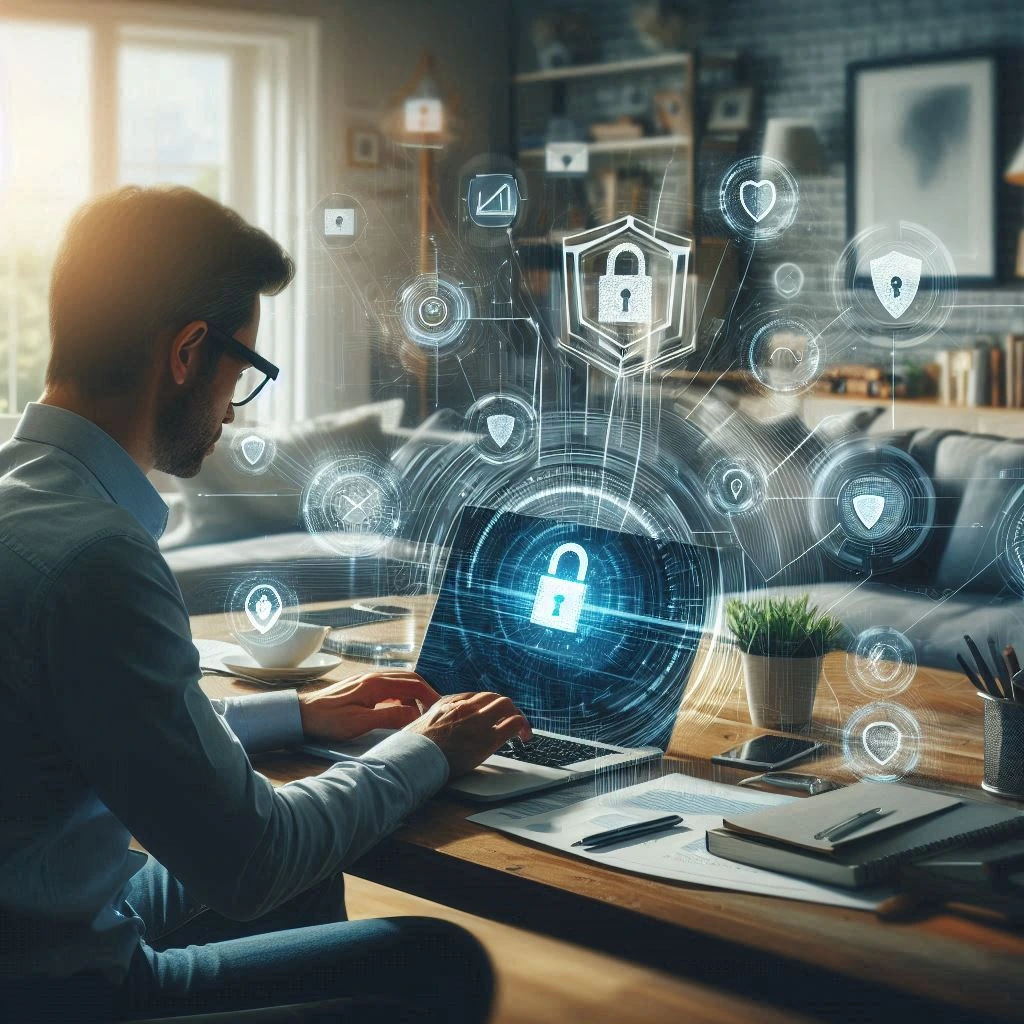The COVID-19 pandemic has transformed the workplace landscape, with remote work becoming the new norm. This shift has introduced significant cybersecurity risks that organizations must address to protect sensitive data and maintain operational integrity. Internal auditors play a pivotal role in this process, ensuring that cybersecurity audits are effectively conducted to safeguard remote work arrangements. A cybersecurity audit certificate can further validate the thoroughness of these processes. In this blog, we will delve into the importance of cybersecurity audits, the risks associated with remote work, and the framework for conducting these audits effectively [1].
The Importance of Cybersecurity Audits in Remote Work Arrangements
As employees access company networks from various locations, the attack surface has expanded, leading to increased cybersecurity threats. Internal auditors are essential in mitigating these risks by assessing the effectiveness of cybersecurity controls and identifying vulnerabilities. Here are some key considerations [2]:
- Network Security: Ensure that VPNs are properly configured and utilized by all remote workers, and that firewalls are robust and up-to-date.
- Data Protection: Verify that sensitive data is encrypted both at rest and in transit, and that access controls are adequate to prevent unauthorized access.
- Device Management: Assess the use of personal devices for work and ensure they meet minimum security standards.
- User Education: Evaluate the effectiveness of cybersecurity awareness training programs to ensure remote workers understand their roles and responsibilities.
By prioritizing cybersecurity audits, organizations can reduce the risk of cyber threats and protect sensitive data, maintaining trust with stakeholders.
Cybersecurity Risks Associated with Remote Work
Understanding the cybersecurity risks that come with remote work is crucial for internal auditors and IT managers. Key risks include [3]:
- Phishing Attacks: Remote workers are more susceptible to phishing attempts, which can lead to unauthorized access and data breaches.
- Use of Personal Devices: Employees using personal devices or public Wi-Fi can compromise network security, increasing vulnerability to cyber threats.
- Data Breaches: Unauthorized access and insider threats can lead to significant data breaches, especially in a remote work environment.
To mitigate these risks, organizations should:
- Educate remote workers on identifying phishing attempts and secure communication practices.
- Implement VPNs or secure access gateways to encrypt internet traffic.
- Conduct regular security audits and vulnerability assessments.
Cybersecurity Audit Framework for Remote Workers
A structured framework for conducting cybersecurity audits on remote workers is essential. This framework includes [4]:
Identifying and Assessing Remote Worker Risk Factors
- Device Usage: Evaluate whether personal devices meet security standards.
- Internet Connectivity: Assess the security of public Wi-Fi networks used by remote workers.
- Software Updates: Ensure timely software updates to mitigate vulnerabilities.
Evaluating Remote Access Policies, Procedures, and Controls
- Password Policies: Ensure strong password practices are enforced.
- Multi-Factor Authentication (MFA): Verify MFA is in place for remote access.
- Session Management: Review procedures for managing remote sessions.
Assessing Data Protection Measures
- Encryption: Confirm that sensitive data is encrypted during transmission and storage.
- Backups: Ensure regular backups are performed and stored securely.
By following this framework, internal auditors can effectively assess and mitigate cybersecurity risks associated with remote work [6].
Best Practices for Conducting Cybersecurity Audits on Remote Workers
To enhance the effectiveness of cybersecurity audits, consider the following best practices:
- Develop a Comprehensive Audit Plan: Tailor your audit plan to address the unique challenges of remote work.
- Use Technology-Based Solutions: Leverage automated tools for vulnerability scanning and real-time monitoring.
- Communicate Findings Clearly: Ensure stakeholders understand the risks and recommended actions.
- Engage IT Teams Early: Collaborate with IT to align audit procedures with existing security protocols.
Cybersecurity Audit Certificate: Importance and Benefits
Obtaining a cybersecurity audit certificate is crucial for organizations with remote workers. This certification [7]:
- Demonstrates Compliance: Ensures adherence to regulatory requirements and industry standards.
- Enhances Reputation: Builds trust with stakeholders by showcasing a commitment to cybersecurity.
- Reduces Cyber Risk Exposure: Identifies vulnerabilities and implements measures to mitigate them.
For internal auditors and IT managers, a cybersecurity audit certificate is essential for:
- Providing assurance of adequate cybersecurity measures.
- Identifying areas for improvement.
- Enhancing organizational credibility.
FAQ: Common Questions About Cybersecurity Audits
What is a cybersecurity audit?
A cybersecurity audit is a comprehensive evaluation of an organization’s information systems, policies, and practices to ensure compliance with security standards and identify vulnerabilities.
Why are cybersecurity audits important for remote work?
Cybersecurity audits are crucial for remote work as they help identify and mitigate risks associated with accessing company networks from unsecured locations.
How often should cybersecurity audits be conducted?
Organizations should conduct cybersecurity audits regularly, ideally at least annually or whenever significant changes to remote work policies occur.
Key Takeaways
- Regular cybersecurity audits are essential for maintaining secure remote work arrangements.
- Internal auditors play a critical role in ensuring organizational cyber resilience.
- Obtaining a cybersecurity audit certificate enhances organizational reputation and compliance posture.
Conclusion
In conclusion, regular cybersecurity audits are vital for organizations with remote workers. Internal auditors must prioritize these audits to ensure robust cybersecurity measures are in place. By obtaining a cybersecurity audit certificate and implementing best practices, organizations can enhance their security posture and mitigate risks associated with remote work. As the digital landscape continues to evolve, the importance of cybersecurity audits will only grow, making them an essential component of organizational strategy.
Find out more about Shaun Stoltz https://www.shaunstoltz.com/about/
This post was written by an AI and reviewed/edited by a human.



